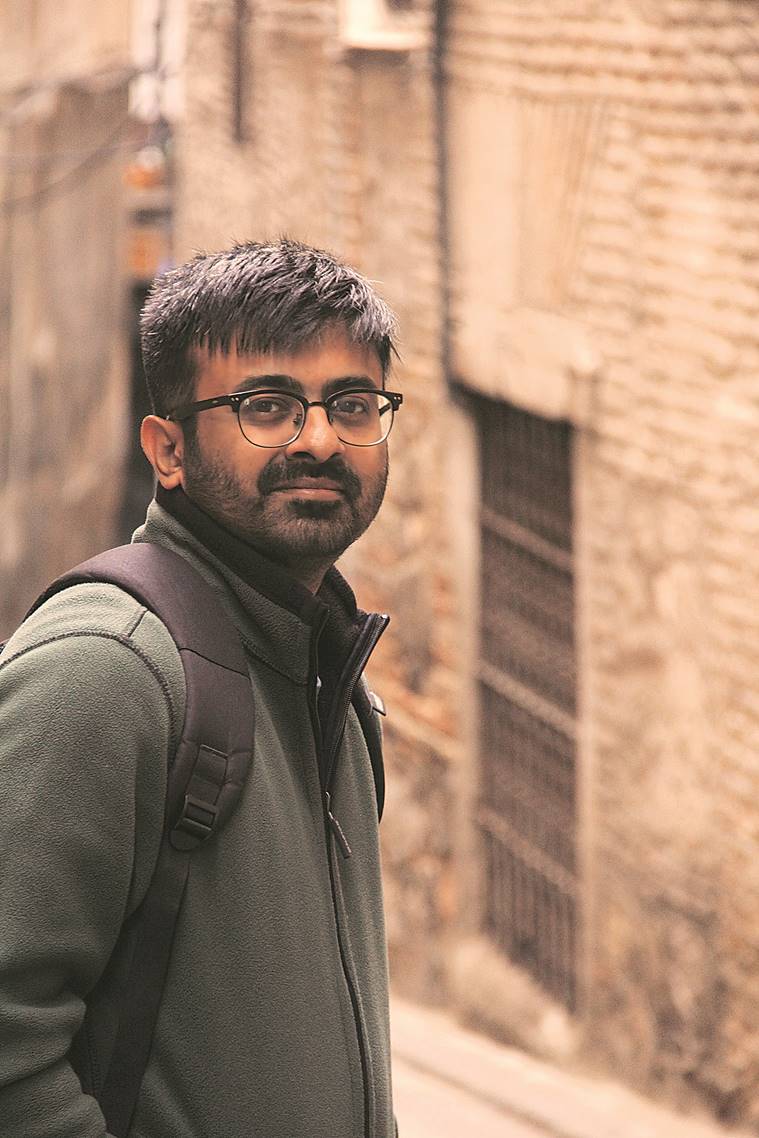The Journey Within
Garnering rave reviews ever since its release last week, Marathi film Chumbak explores a boy’s struggle to choose between his dream and his honesty

A still from Chumbak
A young boy dreams of opening his own business back in his village even as he scrubs tables at one of Mumbai’s many Udipi restaurants. Short of a few thousand rupees and nudged by his friend, the boy, Balu, hatches a plan to dupe people. The one to fall for their “lottery” turns out to be a middle-aged autistic man who has travelled a long way from his village to claim his win. The fateful meeting triggers a dilemma in young Balu — the rest of the Marathi film Chumbak explores the boy’s struggle to choose between his dream and his conscience even as the two become unlikely companions on a journey that is both internal and external.
Shot beautifully and told with a nuanced narrative, Chumbak has been receiving rave reviews ever since its release last week. It marks a debut of several talents but most notably, it is Sandeep Modi’s first feature as a director. Swanand Kirkire, who has been seen in bit roles in the past, also turns protagonist with Chumbak. The acclaimed lyricist shines as the simpleton Prasanna — at the same time endearing and entertaining. Talking about the role, Kirkire admits that overdoing Prasanna would have made him look stupid and underplaying him would have made him like “any of us”.
“Maintaining that fine balance was the biggest challenge of the role,” he points out. What helped was the character’s quirky appearance, with waist-high pants, sports shoes and a duffle bag strung across his shoulder — an image, Kirkire says, helped him internalise Prasanna. “It was a bit like Charlie Chaplin where the image is also the character,” he explains.
Modi adds that the character was complete once Kirkire realised its important trait: Prasanna does not understand subtext. “The film’s premise is centred on this fact but once Swanand spelt it out, it made it easier for us all to locate the character with all its eccentricities as well as consistencies,” says Modi.
The scenically shot film takes several twists and turns, however, the director is able to keep the focus on the characters’ internal journeys. “Most films are based on ‘heroes’ who went all out and fought to win. We rarely have stories about people who let go of a fight because they didn’t want to win like that. That’s our narrow perception of heroes. Balu’s struggle is that he doesn’t want to achieve his dream by playing by the usual rules of the world,” Modi points out.
The film underlines the quality of storytelling in Marathi cinema that we have witnessed over the last few years with films such as Fandry, Killa and Harishchandrachi Factory. While he does admit that experimenting with content is easier in regional cinema, Modi adds that making a film in the language of the characters adds to the charm. Kirkire, however, believes Marathi cinema has merely followed the Marathi tradition of nataks. “At one point, Shivaji Mandir in Dadar would have shows like cinemas do. People are used to varying content and are thus more receptive.”
The lyricist, a Maharashtrian from Indore, grew up in this tradition. It was this, and his exposure to world cinema from early years, that shaped Kirkire’s passion for the medium, pushing him to study theatre design and direction at the prestigious National School of Drama. Known for the simplicity of his language when he pens songs, Kirkire calls himself an “accidental lyricist”. “I have wanted to direct films but got caught up as a lyrics writer when it started to bring me work, name and acclaim, all of which was important at that time of my journey,” he explains, adding that he is now focussing on making a directorial debut soon.
Kirkire, who has bagged two National Awards and worked with some of the biggest names in the industry, feels that while it may have derailed his original dream by a few years, writing lyrics has also allowed him to explore genres. “Writing for Hindi films is rewarding in the sense that one day you are expected to pen a Sufiana song and the next project could be Lage Raho… Munnabhai where you have to think and sound like a tapori,” he says.
“Writing lyrics is not about language but thought. Even the most mundane words become exciting if they are used to string the right thought. Take for example, Prasoon Joshi’s song from Rang de Basanti. The word ‘pathshala’ became cool when he coined the phrase ‘masti ki pathshala’.”
However, after 15 years, he admits to certain amount of disillusionment with the profession. “Lyricists are the lowest in the hierarchy; they have very little say and receive almost no appreciation for their work. We are like chutney… mazaa usse hi aata hai par kissi se poocho aaj khane mein kya khaya toh koi chutney ka naam nahi lega,” he says.
For all the latest Lifestyle News, download Indian Express App






















 Director Sandeep Modi
Director Sandeep Modi



No hay comentarios:
Publicar un comentario